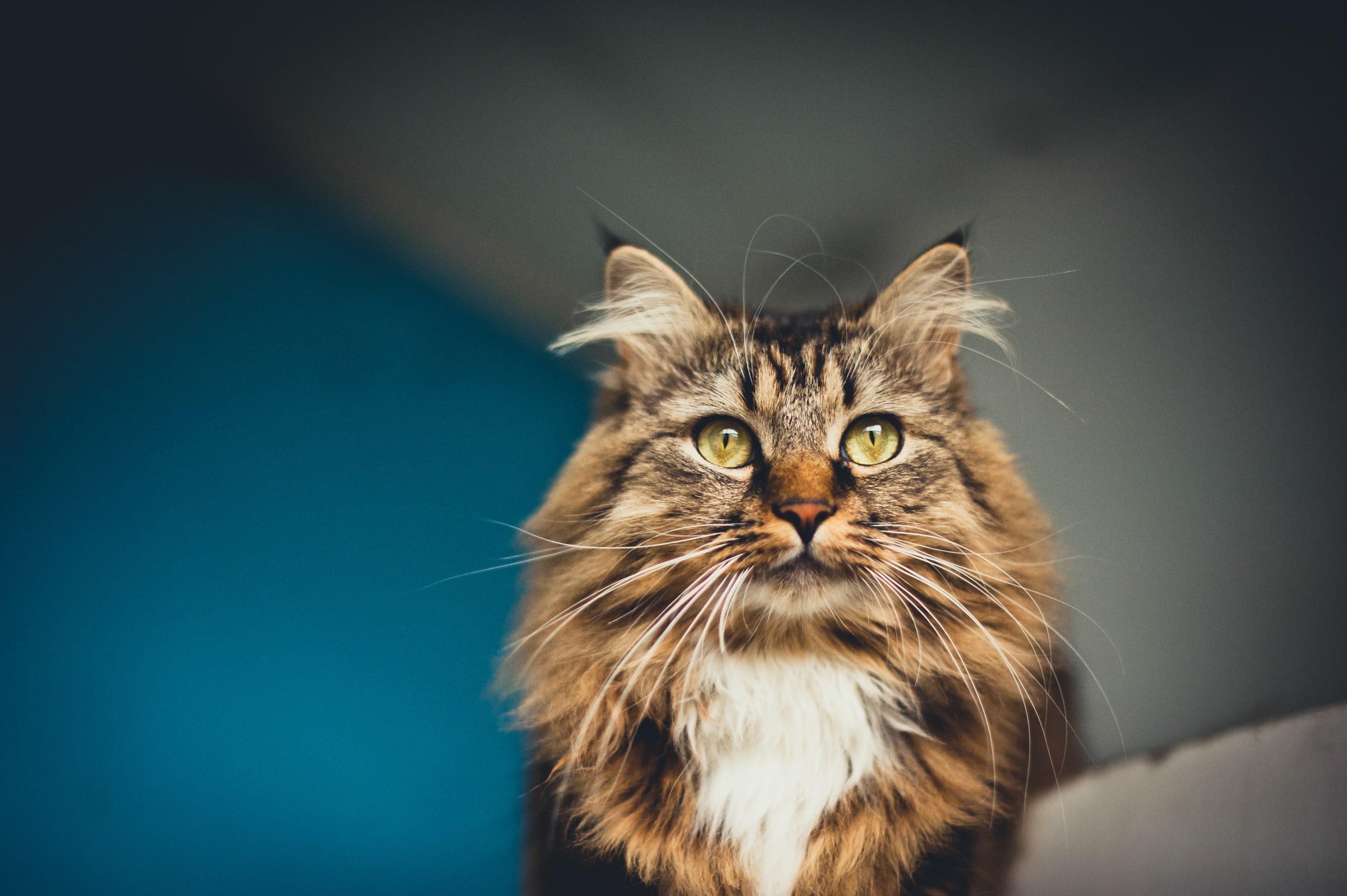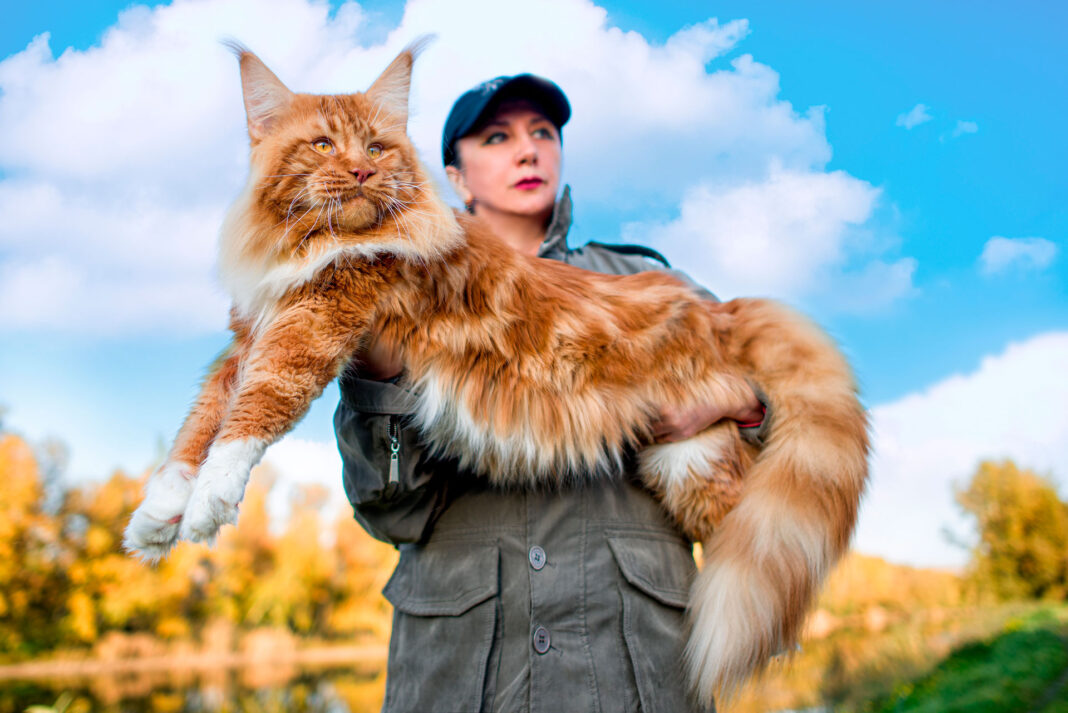Adopting a Maine Coon cat can be one of the most rewarding experiences for any pet lover. These majestic felines, known for their striking appearance and affectionate nature, are not just pets but cherished family members. If you're considering adopting a Maine Coon, this guide will walk you through everything you need to know to make an informed decision.
Maine Coon cats, often referred to as "gentle giants," are one of the largest domesticated cat breeds in the world. Their long, flowing fur, bushy tails, and large paws make them stand out. But beyond their striking looks, these cats are known for their intelligence and playful demeanor, making them excellent companions for families, singles, and seniors alike.
This article delves into the world of Maine Coon cats available for adoption, providing you with essential information on how to choose the right cat, what to expect, and how to prepare for your new furry friend. Whether you're a first-time cat owner or an experienced pet parent, this guide is tailored to help you make the best decision for you and your new companion.
Read also:Layla Jenner Wikipedia The Rising Stars Journey And Everything You Need To Know
Table of Contents
- Breed Overview: Understanding Maine Coons
- The Adoption Process: What to Expect
- Finding Maine Coon Cats for Adoption
- Preparing Your Home for a Maine Coon
- Understanding the Costs of Adopting a Maine Coon
- Healthcare Needs of Maine Coon Cats
- Training and Socializing Your Maine Coon
- Dietary Requirements for Maine Coons
- Lifestyle Considerations for Maine Coon Owners
- Conclusion: Why Adopt a Maine Coon?
Breed Overview: Understanding Maine Coons
Maine Coon cats are a breed with a rich history and unique characteristics that set them apart from other felines. Originating from the northeastern United States, specifically Maine, these cats are believed to have descended from domestic cats and long-haired breeds brought over by European settlers.
Maine Coon Characteristics
One of the most notable features of Maine Coon cats is their size. Adult males can weigh between 13 to 18 pounds, while females typically weigh between 8 to 12 pounds. Their coats come in a variety of colors and patterns, with the most common being brown tabby. Their long, water-resistant fur helps protect them from harsh weather conditions, making them well-suited to colder climates.
- Temperament: Known for their friendly and sociable nature, Maine Coons are often described as gentle giants.
- Intelligence: These cats are highly intelligent and enjoy interactive play and problem-solving activities.
- Vocalization: Unlike other cats, Maine Coons have a soft, chirping voice rather than a traditional meow.
The Adoption Process: What to Expect
Adopting a Maine Coon cat involves several steps, each designed to ensure the cat finds a loving and suitable home. The process can vary depending on the shelter or rescue organization but typically includes the following stages:
Steps in the Adoption Process
- Application: Submit an adoption application to provide details about your lifestyle, home environment, and previous pet ownership experience.
- Interview: A representative from the shelter may interview you to learn more about your expectations and needs as a pet owner.
- Home Visit: Some organizations conduct home visits to ensure the environment is safe and suitable for the cat.
- Contract Signing: Once approved, you'll sign an adoption contract that outlines your responsibilities as the cat's new owner.
Finding Maine Coon Cats for Adoption
There are several resources available for finding Maine Coon cats up for adoption. Shelters, rescue organizations, and online platforms can help connect you with cats in need of a home.
Where to Look for Maine Coon Cats
- Local Shelters: Many local animal shelters have Maine Coon cats available for adoption. Visiting in person can give you a better sense of the cat's personality.
- Breed-Specific Rescues: Organizations dedicated to rescuing and rehoming Maine Coons can be excellent resources for finding your perfect match.
- Online Platforms: Websites like Petfinder and Adopt-a-Pet allow you to search for Maine Coon cats by location and age.
Preparing Your Home for a Maine Coon
Before bringing your new Maine Coon home, it's important to prepare your living space to ensure a smooth transition. Creating a safe and comfortable environment will help your cat adjust quickly.
Essential Items for Your Maine Coon
- Litter Box: Choose a large litter box to accommodate your cat's size.
- Scratching Post: Provide sturdy scratching posts to prevent damage to furniture.
- Grooming Tools: Invest in high-quality grooming tools to manage their long fur.
Understanding the Costs of Adopting a Maine Coon
Adopting a Maine Coon involves both initial and ongoing costs. Understanding these expenses can help you budget effectively and ensure you can provide the best care for your new pet.
Read also:The Walking Dead Kpkuang A Deep Dive Into The Zombie Apocalypse Phenomenon
Typical Adoption Costs
- Adoption Fee: This fee typically covers vaccinations, spaying/neutering, and microchipping.
- Veterinary Expenses: Regular check-ups, dental care, and potential treatments for breed-specific health issues.
- Food and Supplies: High-quality food, grooming supplies, and toys.
Healthcare Needs of Maine Coon Cats
Maine Coon cats are generally healthy, but like all breeds, they are prone to certain genetic conditions. Regular veterinary care and a balanced diet are crucial for maintaining their health.
Common Health Issues in Maine Coons
- Hypertrophic Cardiomyopathy (HCM): A heart condition that affects many Maine Coons.
- Spinal Muscular Atrophy (SMA): A genetic disorder that affects muscle development.
- Dental Problems: Regular dental care is essential to prevent gum disease and tooth decay.
Training and Socializing Your Maine Coon
Maine Coons are intelligent and eager to please, making them relatively easy to train. Socializing your cat from a young age can help them become more adaptable and friendly.
Tips for Training Your Maine Coon
- Positive Reinforcement: Reward good behavior with treats and affection.
- Interactive Play: Use toys and puzzles to engage their minds and bodies.
- Socialization: Expose your cat to different people, animals, and environments to build confidence.
Dietary Requirements for Maine Coons
A balanced diet is essential for maintaining the health and vitality of your Maine Coon. Their large size and active lifestyle require specific nutritional needs.
Best Foods for Maine Coons
- High-Quality Protein: Look for foods with real meat as the primary ingredient.
- Grain-Free Options: Some cats benefit from grain-free diets to prevent allergies and digestive issues.
- Hydration: Ensure your cat has access to fresh water at all times.
Lifestyle Considerations for Maine Coon Owners
Owning a Maine Coon requires a commitment to their well-being and happiness. Understanding their lifestyle needs can help you create a fulfilling life for your pet.
Factors to Consider
- Space Requirements: These cats enjoy roaming and exploring, so a spacious home is ideal.
- Exercise Needs: Regular play sessions and outdoor time (if safe) are important for their physical health.
- Companionship: Maine Coons thrive on human interaction and can benefit from having another pet companion.
Conclusion: Why Adopt a Maine Coon?
Adopting a Maine Coon cat is a decision that can bring immense joy and companionship into your life. With their striking appearance, affectionate nature, and intelligent demeanor, these cats make wonderful additions to any family. By following the steps outlined in this guide, you can ensure you're fully prepared to provide a loving home for your new feline friend.
Call to Action: If you're ready to adopt a Maine Coon, start by researching local shelters and rescue organizations. Share this article with others who may be interested in adopting a cat, and leave a comment below with your thoughts or experiences. Together, we can help more Maine Coons find their forever homes!
Data sourced from reputable organizations such as the Cat Fanciers' Association (CFA) and the American Veterinary Medical Association (AVMA).


